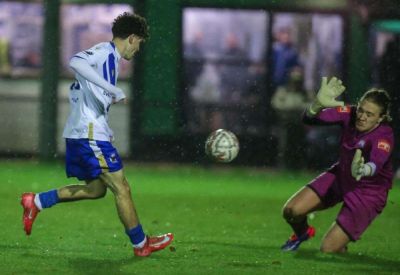How the woman who wasn't allowed to play built a future for Canadian hockey
Few people in this country have had the kind of profound impact on how Canadians live and breathe sport like Danièle Sauvageau.
Her name is synonymous, certainly in Quebec, with the game stitched across the nation’s heart.
“She's touched every level of female hockey and male hockey, to be honest,” said Marie-Philip Poulin, captain of the Montreal Victoire and the decorated women’s national team.
“She's always had a strong drive to make sure that we grew female hockey here in Quebec. And for many years, it was difficult. I feel like right now we have such incredible momentum, to see the crowd that comes to the Victoire games and to see young girls wear jerseys all over the place, it's pretty incredible.”
Sauvageau, the girl who grew up in Deux-Montanges, Que., and wasn’t allowed to play on an organized hockey team because she wasn’t a boy, is now inextricably linked to the growth and strength of the game. The general manager of the PWHL’s Montreal Victoire became a national hero when she led Team Canada to the country’s first hockey gold in 50 years at the Salt Lake City Olympics in 2002.
She’ll soon join an elite class of eternal hockey demigods when she’s inducted into the Hockey Hall of Fame as a Builder. The category, which honours non-players making significant contributions to the sport, already includes NHL commissioner Gary Bettman, former coaches Scotty Bowman and Pat Burns, and Lord Stanley (yes, that Lord Stanley).
There are 119 Builders in the Hall of Fame. Sauvageau is the first woman.
She’s a force in hockey. Respected, revered and, yes, maybe a bit feared. At least, until you encounter the passion that lies beneath her straightforward demeanor.
“I mean, she is intimidating,” Poulin said with a smile.







